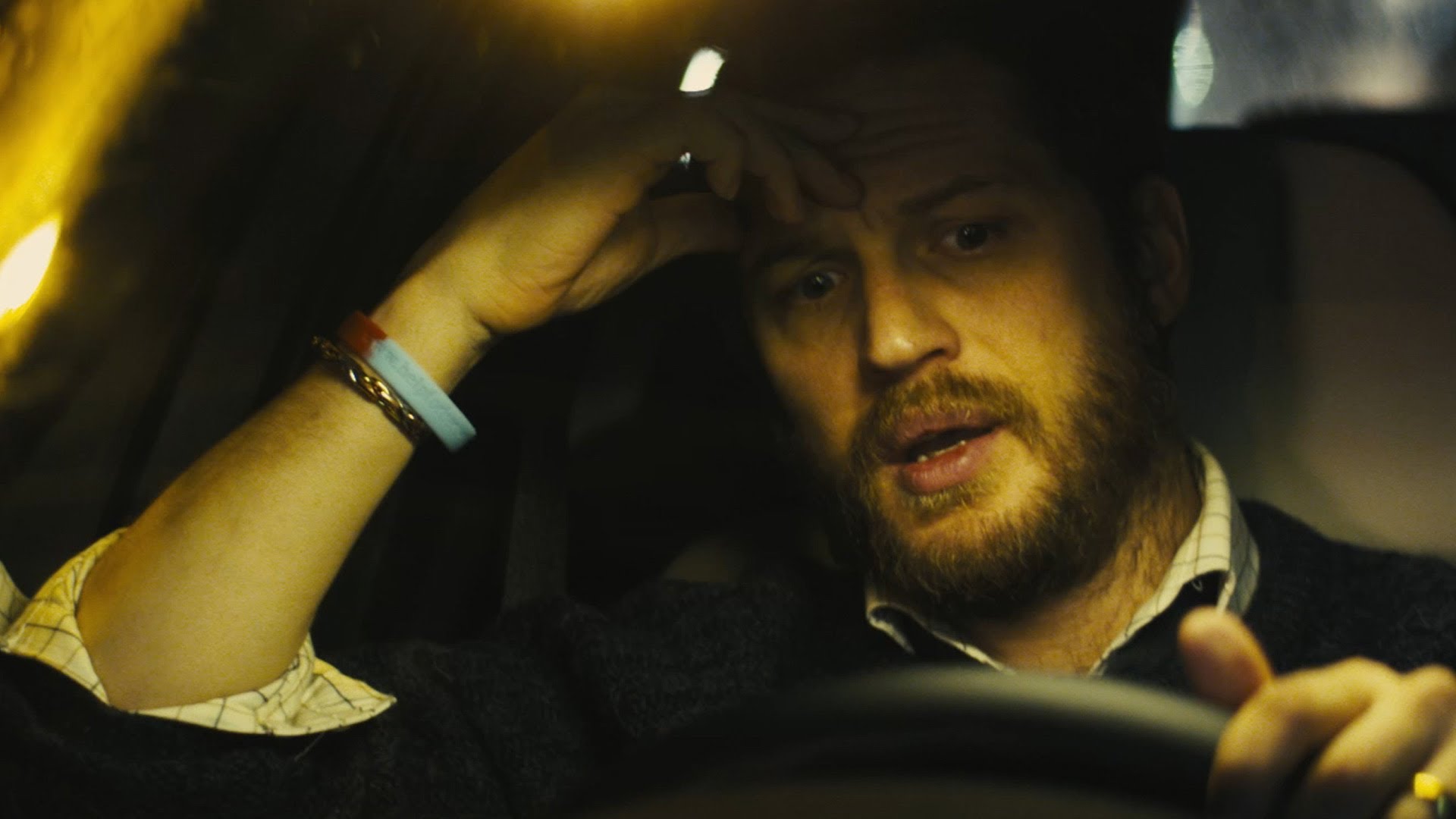Locke wins two awards. The first is setting a new benchmark for the car ride from hell. The other is for Tom Hardy, who delivers a tour de force performance responding only to phone calls in a car for an hour and a half. Locke is only compelling cinema because of its star.
Ivan Locke (Hardy) is on his way home from work. He is traveling to a hospital where a one-night stand (voice of Olivia Colman) is about to have his baby; in addition, Ivan has yet to break the news to his wife (Ruth Wilson) or son (voice of Tom Holland). On top of that, Locks is managing a big project laying the foundation of a new building, which he now has to put into the hands of the witless new manager Donal (voice of Andrew Scott). Ivan’s decision clearly draws anger and frustration from his boss (voice of Ben Daniels) who tells Locke that he probably cannot defend him from being fired.
No, the voices are not in Ivan Locke’s head. They are a cacophony of voices calling Ivan asking him to fix something. Ivan has to deal with problems ranging from watching a soccer game to seeking permits for street closures. Each person has different personalities and pressure points, causing Ivan to switch his personality for every new call that comes his way. Such nuance in the hands of a lesser actor would derail Locke quickly, but a talent like Tom Hardy carries the material with charisma and nuance. Within the first couple calls, Hardy establishes Locke’s attention to detail, love for his family, and lack of understanding for people’s feelings. Hardy uses Locke’s past with his father as a driving (sorry for the pun) force for his current predicament, and uses every pause, inflection, and word to infuse the movie with his presence. Only a talented actor could make you believe he could will a multi-faceted project to success and be fragile enough to be hurt by the people he loves simultaneously, and Hardy is more than up to the task.
When you have a talent like Tom Hardy taking all of the audience’s focus, it is the director’s job to complement your star subtly. Director Steven Knight’s secret weapon is using Locke’s fated car ride to great effect. Hardy is shot from multiple angles using the mirrors and reflections provided by a car, nicely indicating how many directions Locke is being pulled in. In addition the mirrors allow Locke to talk to himself and his own demons. On long car rides, images can blur together, making unclear the road ahead, a nice picture to show when Locke is either thinking or talking. Whenever someone on the phone throws Locke for a loop, a turn signal or stop light appears. In addition, the nighttime aspect gives Locke a very isolated and ominous feel as Ivan tries to navigate the minefield he created. These little directorial touches allow time for the audience to catch their breath between each call and magnify the tension inherent in the story so no dead spots exist in the screenplay.
Locke proves that Tom Hardy is not just a badass who can break Batman’s back or navigate dreams within dreams. He is also a serious actor with considerable talent for commanding the screen. Locke pops and drops it because Writer/Director Steven Knight understands that all audiences really want to see is Tom Hardy with a dashboard cam, with all of us along for the ride.

